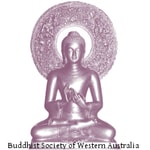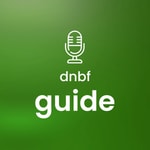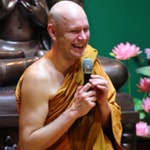dnbf enigma – Détails, épisodes et analyse
Détails du podcast
Informations techniques et générales issues du flux RSS du podcast.

dnbf enigma
Den Norske Buddhistforening
Fréquence : 1 épisode/41j. Total Éps: 18

Classements récents
Dernières positions dans les classements Apple Podcasts et Spotify.
Apple Podcasts
🇬🇧 Grande Bretagne - buddhism
11/03/2025#100🇩🇪 Allemagne - buddhism
31/12/2024#97🇩🇪 Allemagne - buddhism
30/12/2024#76🇩🇪 Allemagne - buddhism
02/12/2024#90🇩🇪 Allemagne - buddhism
01/12/2024#78🇩🇪 Allemagne - buddhism
30/11/2024#65🇩🇪 Allemagne - buddhism
29/11/2024#60🇩🇪 Allemagne - buddhism
28/11/2024#52🇩🇪 Allemagne - buddhism
27/11/2024#44🇩🇪 Allemagne - buddhism
26/11/2024#31
Spotify
Aucun classement récent disponible
Liens partagés entre épisodes et podcasts
Liens présents dans les descriptions d'épisodes et autres podcasts les utilisant également.
See all- https://dnbf.org/en/donation/
80 partages
- https://dnbf.org/en/patron/
78 partages
- https://dnbf.org/en/newsletter/
78 partages
Qualité et score du flux RSS
Évaluation technique de la qualité et de la structure du flux RSS.
See allScore global : 53%
Historique des publications
Répartition mensuelle des publications d'épisodes au fil des années.
What is jhana and samadhi | EN | Bhante Sujato
mercredi 30 octobre 2024 • Durée 42:41
Jhana has become popular, but often dumbed down. So then it helps to have an overview of how aspects of the path fits together.
Jhana means oneness and illumination, and is described as having five factors: applied and sustained application (vitakka, vicara), rapture or uplift (piti), pleasure (sukha) and unification of consciousness (ekaggata). And the coming together of all this factors is jhana.
And each person has the potential to realise these stages of meditation, they represent the very end and summit of the eight fold path, and is also the foundation for deep insights.
This teaching was given during a retreat at Venabu in October 2024:
https://dnbf.org/en/2024/11/venabu-autumn-2024/
- - -
Please, feel free to recommend this podcast to your friends!
Feedback
If you have feedback or questions about this podcast, send an email to: post@dnbf.org
Donation
The non-profit society DNBF together with the instructor has produced and distributed this podcast for free and without advertising, but we are dependent on financial support through one-time donations or monthly patron donations for our operation and development:
DNBF Donation - https://dnbf.org/en/donation/
DNBF Patron - https://dnbf.org/en/patron/
Newsletter
Subscribe to our newsletter to receive information about our activities:
https://dnbf.org/en/newsletter/
Membership
You are welcome as a member, and we have a lot to offer in terms of activities:
https://dnbf.org/en/membership/
Problems
If you have a problem with this podcast, send an email to: post@dnbf.org
The four bases of mental power | EN | Bhante Sujato
mardi 29 octobre 2024 • Durée 38:05
When coming to a retreat, you give up a lot for a few days − there is maybe a desire or a longing for freedom. And just that is the first of 'The four bases of mental power' (iddhi pada), this wish or longing for freedom and a spiritual development − and maybe the most important supporting factor for this desire is mental pleasure, which is really important to develop.
The second factor is energy, so to keep going and not giving up. The third factor is mind or heart or consciousness, a clear mind which can deliver answers. And the last factor is investigation or inquiry, this ability to see what is going on, what changes and why - and as your peace of mind deepens, so will the investigation deepens into insights.
These are factors which we can focus on, to give our meditation practise a boost − this enthusiasm, energy, clarity of mind and inquiring wanting to understand.
This teaching was given during a retreat at Venabu in October 2024:
https://dnbf.org/en/2024/11/venabu-autumn-2024/
- - -
Please, feel free to recommend this podcast to your friends!
Feedback
If you have feedback or questions about this podcast, send an email to: post@dnbf.org
Donation
The non-profit society DNBF together with the instructor has produced and distributed this podcast for free and without advertising, but we are dependent on financial support through one-time donations or monthly patron donations for our operation and development:
DNBF Donation - https://dnbf.org/en/donation/
DNBF Patron - https://dnbf.org/en/patron/
Newsletter
Subscribe to our newsletter to receive information about our activities:
https://dnbf.org/en/newsletter/
Membership
You are welcome as a member, and we have a lot to offer in terms of activities:
https://dnbf.org/en/membership/
Problems
If you have a problem with this podcast, send an email to: post@dnbf.org
Wisdom alongside meditation | EN | Ajahn Brahm
dimanche 27 novembre 2022 • Durée 01:03:35
Sometimes meditation is frustrating and disappointing, then we should practice insights. And just as in the story of Sam and Vi, each with their dog, Metta and Anapana, climbs a mountain both for deep peace and a clear view, so we can climb the meditation mountain inside.
But we have blind spots, we see only what we want to see, and don't see what we don't want to see. Real insights goes much deeper then you think is obvious, and wisdom is not believing what you see. And few stories highlight these blind spots. Basically, you need a strong mind to see clearly!
And on the way to the big insights and stages of awakening, there are many smaller wisdoms to develop − our minds have powerful abilities and we can even remembering our past lives.
This teaching was given in Oslo 2022:
https://dnbf.org/en/2022/11/ajahn-brahm-weekend-retreat/
- - -
Please, feel free to recommend this podcast to your friends!
Feedback
If you have feedback or questions about this podcast, send an email to: post@dnbf.org
Donation
The non-profit society DNBF together with the instructor has produced and distributed this podcast for free and without advertising, but we are dependent on financial support through one-time donations or monthly patron donations for our operation and development:
DNBF Donation - https://dnbf.org/en/donation/
DNBF Patron - https://dnbf.org/en/patron/
Newsletter
Subscribe to our newsletter to receive information about our activities:
https://dnbf.org/en/newsletter/
Membership
You are welcome as a member, and we have a lot to offer in terms of activities:
https://dnbf.org/en/membership/
Problems
If you have a problem with this podcast, send an email to: post@dnbf.org
Buddhism in a nutshell | EN | Ajahn Brahm
samedi 26 novembre 2022 • Durée 01:09:35
Buddhism is not a religion of belief, but a training to empower ourselves to develop wisdom and happiness, based on our own experience. Some people, the bhikkhunis and bhikkhus, do this training full time, and then become teachers for others. And maybe the most important aspekt is kindness, and a few good stories are told about how kindness can help, both when one encounters poisonous snakes, or when you need building approval from the municipality. But the talk starts by answering a deeper question about meditation.
This teaching was given in Oslo 2022:
https://dnbf.org/en/2022/11/ajahn-brahm-weekend-retreat/
- - -
Please, feel free to recommend this podcast to your friends!
Feedback
If you have feedback or questions about this podcast, send an email to: post@dnbf.org
Donation
The non-profit society DNBF together with the instructor has produced and distributed this podcast for free and without advertising, but we are dependent on financial support through one-time donations or monthly patron donations for our operation and development:
DNBF Donation - https://dnbf.org/en/donation/
DNBF Patron - https://dnbf.org/en/patron/
Newsletter
Subscribe to our newsletter to receive information about our activities:
https://dnbf.org/en/newsletter/
Membership
You are welcome as a member, and we have a lot to offer in terms of activities:
https://dnbf.org/en/membership/
Problems
If you have a problem with this podcast, send an email to: post@dnbf.org
QA in Oslo | EN | Ajahn Brahm
samedi 26 novembre 2022 • Durée 01:33:58
These questions were asked and answered:
(00:00) − Christmas family time - I find it really difficult when I gather with my big family for Christmas for many days, can you give some advice on how to handle the lack of silence, the negative discussions, they love to discuss all the problems in the world, the overload of thing and food, everybody has so much, and all want to buy more?
(12:05) − Do you currently have Thais in the Thai sangha? (the bhikkhuni controversy)
(20:23) − Are you supporting the Thai bhikkhunis in Thailand? If so, how?
(23:29) − Through deep hypnosis, I broke through and came into a state of bliss. This is my first experience of a nimitta. The following day I wanted to get back to this, and tried to force myself back to the beach, and the dark night, but I terrified because I am sure I saw some demons. Is this real? Is this made by my mind because I tried to force it back to the blissful state? Luckily have have experience nimittas on retreat after this, but then i don't let go, and stay for hours. Can you go in and out of this stage? Is it like riding a bicycle when you get the experience?
(33:53) − Ever so often, I experience the biggest effect of meditation. After the meditation, when I don't try to meditation, I fall into deep meditation.
(37:02) − No self, how to explain to my husband that his wife does not exist?
(41:57) − How do you find the right balance between doubt and faith/trust in Buddhism? I feel like too much doubt becomes a hindrance, faith without some doubt becomes blind faith. Any input or thought on this?
(50:43) − I can only focus on three consecutive breaths before my mind wanders off. What am I doing wrong in the previous stage?
(57:31) − My parents are kind people, but I never feel close or good connection with them in my head, spending half a day with my mother is enough for me each time I visit them. How can I let go of the guilty feeling I have to be there for my parents (78 and 81 years old), when they seem like they don't need me.
(1:00:35) − What is the Buddha's way of seeing the war in Ukraine, and other wars. What to do with Putin?
(1:03:39) − Could you please tell us more about breathing during the meditation.
(1:11:08) − During breathing meditation, I have the feeling that the breath is not right, I am loosing my breath when meditating.
(1:12:13) − Can you please tell us a bit more about full bhikkhuni ordination for women. Why is it important that woman can receive full ordination, compared to other arrangements, such as maechi and others. And what are the arguments from those monks who disagree with you?
(1:13:47) − How to deal with facial muscle tensions?
(1:14:22) − How to deal with chronic pain during meditation?
(1:18:22) − The Buddha developed the teaching of an-atman, contra the Hindu atman, if there are no self, what is then that goes on to be reincarnated or reborn?
(1:22:06) − What is the difference between reincarnation and rebirth?
(1:22:33) − If there is no God, why does Buddhist pray?
This teaching was given in Oslo 2022:
https://dnbf.org/en/2022/11/ajahn-brahm-weekend-retreat/
- - -
Please, feel free to recommend this podcast to your friends!
Feedback
If you have feedback or questions about this podcast, send an email to: post@dnbf.org
Donation
The non-profit society DNBF together with the instructor has produced and distributed this podcast for free and without advertising, but we are dependent on financial support through one-time donations or monthly patron donations for our operation and development:
DNBF Donation - https://dnbf.org/en/donation/
DNBF Patron -
The opening of the lotus flower by not owning | EN | Ajahn Brahm
samedi 26 novembre 2022 • Durée 01:03:42
Training the mind, is not forcing the mind, but understanding and working with your mind. One problem is that we think we own our meditation, but if we can look at ourselves as guests − then there is less to do, and we can relax.
And as we meditate deeper and deeper, it is like the mind opens up like a lotus flower - layer by layer. First into the present moment, then into silence, then into breathing, then into joy and delight. Even deeper in, we get to stages of lights and brightness, before entering those powerful stages of jhana.
And interestingly enough, these jhana stages has probably been attained by spiritual seekers from other traditions as well.
This teaching was given in Oslo 2022:
https://dnbf.org/en/2022/11/ajahn-brahm-weekend-retreat/
- - -
Please, feel free to recommend this podcast to your friends!
Feedback
If you have feedback or questions about this podcast, send an email to: post@dnbf.org
Donation
The non-profit society DNBF together with the instructor has produced and distributed this podcast for free and without advertising, but we are dependent on financial support through one-time donations or monthly patron donations for our operation and development:
DNBF Donation - https://dnbf.org/en/donation/
DNBF Patron - https://dnbf.org/en/patron/
Newsletter
Subscribe to our newsletter to receive information about our activities:
https://dnbf.org/en/newsletter/
Membership
You are welcome as a member, and we have a lot to offer in terms of activities:
https://dnbf.org/en/membership/
Problems
If you have a problem with this podcast, send an email to: post@dnbf.org
Journeying into stillness | EN | Ajahn Brahm
samedi 26 novembre 2022 • Durée 01:04:01
This is an introduction to meditation talk, given in Oslo in 2022. It starts by focusing on right motivation − letting go, kindness and gentleness. This motivation will guide our minds towards peace and stillness, by not using force, but allowing stillness to arise just as water in a drinking glass. It is the winds of wanting that makes our mind move away for peace.
Silence is delightful, and also creates a clear bright mind, which can see things clearly. And that clarity of mind can be applied to your body for health, and also towards your mind to deepen your peace and develop wisdom.
This teaching was given in Oslo 2022:
https://dnbf.org/en/2022/11/ajahn-brahm-weekend-retreat/
- - -
Please, feel free to recommend this podcast to your friends!
Feedback
If you have feedback or questions about this podcast, send an email to: post@dnbf.org
Donation
The non-profit society DNBF together with the instructor has produced and distributed this podcast for free and without advertising, but we are dependent on financial support through one-time donations or monthly patron donations for our operation and development:
DNBF Donation - https://dnbf.org/en/donation/
DNBF Patron - https://dnbf.org/en/patron/
Newsletter
Subscribe to our newsletter to receive information about our activities:
https://dnbf.org/en/newsletter/
Membership
You are welcome as a member, and we have a lot to offer in terms of activities:
https://dnbf.org/en/membership/
Problems
If you have a problem with this podcast, send an email to: post@dnbf.org
How the Buddha learned to meditate | EN | Bhante Sujato
lundi 28 octobre 2024 • Durée 51:09
This talk is about the process the Buddha went through learning to meditate, starting with an experiences he had as a child, which teachers he met and learned from and how he was conditioned by other schools. Then later on, how the Buddha stayed with the sramanas doing all kinds of ascetic practises, which the Buddha found as a waste of time.
And finally, when he had been searching out all the best teachers of his time, and not finding them good enough, he started to develop his meditation alone, finding inspiration from his childhood experiences − not following a path but finding out himself.
And we have all this texts today explaining what problems the Buddha had, how he struggled and how he found his way. So this is a beautiful story about perseverance, not giving up, and finding your way yourself.
This teaching was given during a retreat at Venabu in October 2024:
https://dnbf.org/en/2024/11/venabu-autumn-2024/
- - -
Please, feel free to recommend this podcast to your friends!
Feedback
If you have feedback or questions about this podcast, send an email to: post@dnbf.org
Donation
The non-profit society DNBF together with the instructor has produced and distributed this podcast for free and without advertising, but we are dependent on financial support through one-time donations or monthly patron donations for our operation and development:
DNBF Donation - https://dnbf.org/en/donation/
DNBF Patron - https://dnbf.org/en/patron/
Newsletter
Subscribe to our newsletter to receive information about our activities:
https://dnbf.org/en/newsletter/
Membership
You are welcome as a member, and we have a lot to offer in terms of activities:
https://dnbf.org/en/membership/
Problems
If you have a problem with this podcast, send an email to: post@dnbf.org
How to practise after a retreat | EN | Venerable Canda
dimanche 28 avril 2024 • Durée 56:16
After a retreat, how can we continue our practice, how can we transfer our skills to our daily lives? At this retreat at Venabu a whole toolkit was given: right approach to mediation, what happiness and suffering is, learning to be mindful and developing wholesome qualities, the importance of joy and how it is aroused, and wisdom - what it is and how it is developed.
In our daily life we must protect the seed we have planted, and remove the weeds. Keeping the soil moist by virtue - which actually is a beautiful and fun training leading to a blameless bliss. Trying to keep up the daily practice of meditation. Trying to read the original teaching of the Buddha, remembering that patience is the highest spiritual quality. Also - try associate with the wise, they will keep your inspiration up!
In the end of this talk (35:02), there is a finishing off guided loving kindness meditation.
This teaching was given at Venabu 2024:
https://dnbf.org/en/2024/04/venabu-retreat-2024/
- - -
Please, feel free to recommend this podcast to your friends!
Feedback
If you have feedback or questions about this podcast, send an email to: post@dnbf.org
Donation
The non-profit society DNBF together with the instructor has produced and distributed this podcast for free and without advertising, but we are dependent on financial support through one-time donations or monthly patron donations for our operation and development:
Anukampa - https://anukampaproject.org/donate/
DNBF Donation - https://dnbf.org/en/donation/
DNBF Patron - https://dnbf.org/en/patron/
Newsletter
Subscribe to our newsletter to receive information about our activities:
https://dnbf.org/en/newsletter/
Membership
You are welcome as a member, and we have a lot to offer in terms of activities:
https://dnbf.org/en/membership/
Problems
If you have a problem with this podcast, send an email to: post@dnbf.org
Wisdom − what it is, when will it arrise and how | EN | Ajahn Nitho
samedi 27 avril 2024 • Durée 31:10
Ajahn Nitho describes in this talk what wisdom is according to the teaching of the Buddha. He also reads out a short parable describing when wisdom will arrise in a person − independent of gender, body or ethnicity. He continues with a longer descriptions of the various stages of meditation, all the way into deep meditation or jhana, because that is the needed level of meditation for deep wisdom and enlightenment to arrise. In short - a meditation and wisdom journey of ever increasing happiness, mindfulness, clarity, wisdom and freedom.
This teaching was given at Venabu 2024:
https://dnbf.org/en/2024/04/venabu-retreat-2024/
- - -
Please, feel free to recommend this podcast to your friends!
Feedback
If you have feedback or questions about this podcast, send an email to: post@dnbf.org
Donation
The non-profit society DNBF together with the instructor has produced and distributed this podcast for free and without advertising, but we are dependent on financial support through one-time donations or monthly patron donations for our operation and development:
DNBF Donation - https://dnbf.org/en/donation/
DNBF Patron - https://dnbf.org/en/patron/
Newsletter
Subscribe to our newsletter to receive information about our activities:
https://dnbf.org/en/newsletter/
Membership
You are welcome as a member, and we have a lot to offer in terms of activities:
https://dnbf.org/en/membership/
Problems
If you have a problem with this podcast, send an email to: post@dnbf.org




